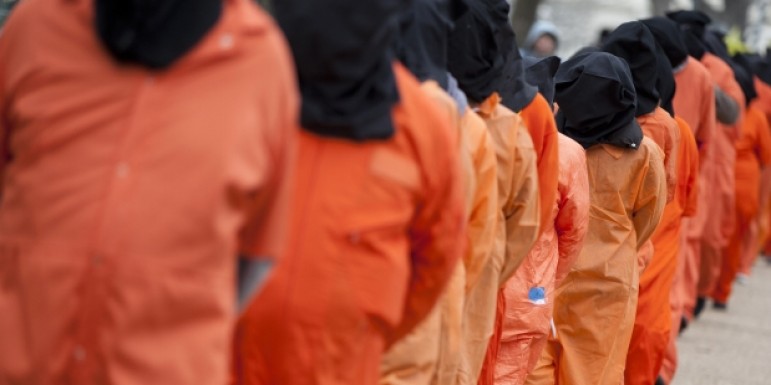
Jobs and housing in Uruguay for Guantánamo prisoners
HAVANA — Uruguayan President José Mujica announced that several businessmen in his country are ready to give jobs and housing to several of the prisoners the United States holds in the prison at Guantánamo, an occupied territory in our country. The solution would help Obama to fulfill a promise: shutting down the Guantánamo prison, an image of shame and arbitrariness.
Don Pepe made the announcement during an interview with Uruguay’s Channel 4.
The prisoners, five in all, are Syrian and Palestinian, a status that makes it difficult for them to return to their native lands.
“They are Syrians, and because Syria is at war they’re in no condition to return, for reasons of security. The same happens with the Palestinian citizen,” the president said.
Don Pepe, who spent 14 years in prison under the dictatorship that controlled his country, knows the price of each minute in prison, all the more so when the imprisonment is unjustified. Ten of his 14 years in prison were spent in an underground cell.
Maybe the talent that he has demonstrated as a political leader is due to the meditation in isolation and the ability to turn rancor into generosity toward others. The past is the only sure thing, and it’s already in the backpack; the future is uncertain, he said in January during the Summit of the Community of Latin American and Caribbean States (CELAC) held in Cuba.
His offer to welcome the prisoners who Washington will release after years without trial (“we don’t do it for money or material convenience,” he said) was accompanied by a possible way out to another problem faced by the Obama administration.
Last week, Mujica said that he had asked “the North American government to please do everything possible to find a way to release those two or three Cuban prisoners who have been there for many years, because that, too, is a shame.”
Mujica was talking about the three Cubans imprisoned in the U.S. for having infiltrated the terrorist networks in Florida for the purpose of detecting actions against our territory.
It was a dishonest process, considered to be not transparent and irregular by almost everyone, including Amnesty International. It included the bribing of journalists to magnify the condemnatory climate for the defendants, and the refusal to show the satellite images that would show if the downing of two private planes by Cuban Air Force planes took place over Cuban or international waters. A key issue, of course.
The release of Gerardo Hernández, sentenced to two life terms, Ramón Labañino and Antonio Guerrero would open the way for a substantial improvement of U.S.-Cuba relations. And, of course, it would bring to the table Havana’s reciprocity, because Cuba holds U.S. citizen Alan Gross, a USAID subcontractor sentenced to 15 years imprisonment for introducing into the island communication equipment that violates national laws.
Gross’ imprisonment hinders an improvement in the relations between the two countries, argues Washington. And Gross will remain in prison while the Cubans are not released through a dialogue and agreement that are perfectly possible in several ways capable of upholding the honor of both parties.
Who will take the first step?
For now, the offer made by the wise Don Pepe — I don’t want to close the door to hope — could contain the possibility of an understanding and even be one of the “couple of ideas” about the Gross case that U.S. Secretary of State John Kerry mentioned he had, not long ago. I hope that the “couple of ideas” contemplate those three men.
Progreso Semanal/ Weekly authorizes the total or partial reproduction of the articles by our journalists, so long as source and author are identified.

